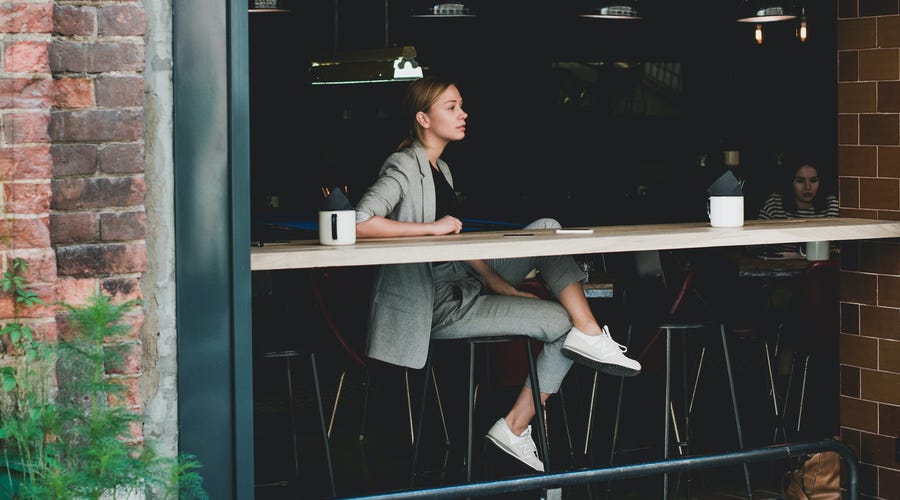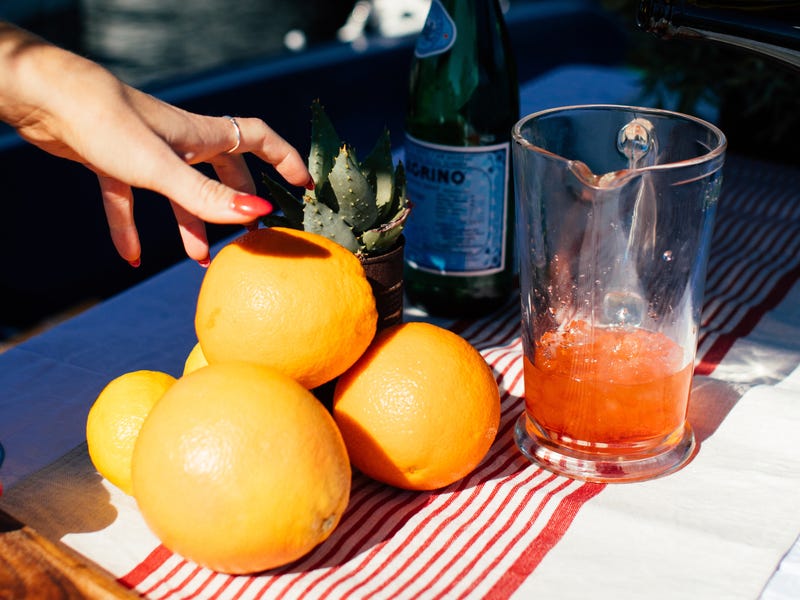Beware, herbal tea drinkers, chamomile lovers, and chai addicts: we are entering the realm of caffeine! Also named: Italy.
Italians drink every day more than 26,000,000 coffees in the 150,000 cafes all over the country, not to mention the many many cups we drink at home, straight out of our moka, or at restaurants, offices, trains, planes, gyms, libraries, gas stations and the list simply doesn’t stop.
We drink coffee to:
- wake up as part of a good morning ritual;
- to take a “pausa” during work;
- to end a delicious meal;
- to enjoy a chat with a friend; or
- a moment of blessed solitude.
And Italian coffee, we proudly affirm, is the best in the world.
Well, while this is certainly a matter of personal taste, you should definitely include multiple coffees in your Italian experience. If you want to look at more delicious drinks besides coffee, then we have you covered for other delightful beverages in Italian here.
Otherwise, start with learning how to order a coffee in Italian and discovering all the terms, expressions and habits that make up the Italian coffee culture.
How to say coffee in Italian
The Italian word for coffee in Italian is pretty similar to the equivalent terms in many other languages, since they all come from the Arabic word “qahwa”. But there are tens of variants you can actually order for your pleasure and discovery. Let’s check them out.

Types of coffee you can order in Italian
| Italian | English | Pronunciation | IPA | What is it |
| Caffè | Coffee | Kah-feh | kafˈfɛ | When you order a coffee in an Italian café, you’ll always receive a very short and concentrated espresso. |
| Caffè macchiato | White coffee | Kah-feh mah-kja-toh | kafˈfɛ makˈkjato | An espresso with a spoon of milk foam |
| Caffè macchiato freddo | Literally: cold white coffee | Kah-feh mah-kja-toh freh-ddoh | kafˈfɛ makˈkjato ˈfred.do | An espresso with a drop of cold milk you usually add by yourself |
| Cappuccino | Cappuccino | Kah-poo-chee-noh | kap.putˈt͡ʃi.no | An espresso covered in milk foam in a big cup (for Italian standards) |
| Latte macchiato | Latte | Lah-tteh mah-kja-toh | ˈlat.te makˈkjato | A glass of hot milk mixed with a little bit of coffee |
| Caffelatte | Café latte | Kah-feh-lah-tteh | kafˈfɛˈlat.te | An espresso with hot milk in a tall glass |
| Caffè lungo | Espresso | Kah-feh loon-goh | kafˈfɛ ˈlun.ɡo | A slightly more watery espresso, similar to what an espresso is outside of Italy. |
| Marocchino | Literally: Moroccan coffee | Mah-roh-kee-noh | ma.rokˈki.no | An espresso with cocoa powder and milk foam |
| Mocaccino or Mokaccino | Mochaccino | Moh-kah-chee-noh | mo.kaˈt͡ʃi.no | An espresso with dark chocolate or chocolate syrup and milk foam |
| Deca | Decaf coffee | Deh-kah | de.ka | An espresso with a reduced amount of caffeine |
| Caffè americano | Literally: American coffee | Kah-feh ah-meh-ree-kah-noh | kafˈfɛ a.me.riˈka.no | A watery coffee served in a cappuccino cup |
| Caffè ristretto | Literally: Short coffee | Kah-feh rees-treh-toh | kafˈfɛ riˈstret.to | An even more concentrated espresso |
| Caffè corretto | Literally: Fixed coffee | Kah-feh cor-reh-ttoh | kafˈfɛ korˈrɛt.to | An espresso with a liqueur of your choice, usually grappa or sambuca |
| Crema di caffè | Literally: coffee cream | Kreh-mah dee kah-feh | ˈkrɛ.ma di kafˈfɛ | An iced coffee cream served in a small glass |
| Caffè freddo | Iced coffee | Kah-feh freh-ddoh | kafˈfɛ ˈfred.do | An espresso with ice |
| Caffè shakerato | Shakerato | Kah-feh sheh-keh-rah-toh | kafˈfɛ ˈʃe.ke.ra.to | An alcoholic drink made with ice and espresso |
| Nutellino | / | Noo-teh-llee-noh | nuːˈtɛl.li-no | An espresso with a spoon of Nutella and, sometimes, whipped cream |
| Caffè d’orzo | Barley coffee | Kah-feh dor-zoh | kafˈfɛ dˈɔr.d͡zo | A slightly watery coffee made with barley |
| Ginseng | Ginseng coffee | Geen-sen-gh | ʒin.sɛŋ | A coffee mixed with ginseng root |
Now you’ve probably realized that Italians are wild for coffee. But the wildness doesn’t stop here, since many regions have their own specialties. Let’s check some of them out:
| Italian | English | Pronunciation | IPA | What is it |
| Caffè con panna | Literally: coffee with cream | Kah-feh kon pah-nnah | kafˈfɛ con ˈpan.na | An espresso with a spoon of whipped cream that’s served in Genoa |
| Bicerin | “Bicerin” means small glass in Turin’s dialect | Bee-cheh-reen | bi.t͡ʃe.rin | An espresso with hot chocolate and whipped cream that’s served in Turin |
| Caffè con la cremina | Literally: coffee with small cream | Kah-feh con lah kreh-mee-nah | kafˈfɛ con la ˈkrɛ.mi.na | In Naples most cafes served their coffee with a cream that’s made by mixing the first drops of coffee out of the machine and sugar |
More notable coffee vocab
The coffee world is much bigger than the beverage itself, so let’s take a look at its most important terms and expressions.

| English | Italian | Pronunciation | IPA |
| Cup | Tazza | Tah-tzah | ˈtat.t͡sa |
| Small cup | Tazzina | Tah-tzee-nah | ˈtat.t͡si.na |
| Coffee spoon | Cucchiaino | koo-kee-ah-eeh-noh | kukˈkja.ino |
| Sugar | Zucchero | Zoo-keh-roh | ˈd͡zuk.ke.ro |
| Brown sugar | Zucchero di canna | Zoo-keh-roh dee kah-nnah | ˈd͡zuk.ke.ro di ˈkan.na |
| Sugar substitute | Dolcificante | Dol-chee-fee-kan-teh | dol.t͡ʃi.fiˈkan.te |
| Coffee maker | Macchina per il caffé | Mah-kee-nah per il kah-feh | ˈmak.ki.na per il kafˈfɛ |
| Moka pot | Moka | Moh-kah | ˈmɔ.ka |
| Moka pot | Caffettiera | Kah-feh-tee-erah | kaffet'tjɛra |
| Barista | Barista | Bah-ree-stah | baˈri.sta |
| Do you want coffee? | Vuoi un caffè? | Voo-oy oon kah-feh | ˈvwɔj un kafˈfɛ |
| Coffee break | Pausa caffè | Paw-zah kah-feh | ˈpaw.za kafˈfɛ |
| I need coffee! | Ho bisogno di un caffè! | Oh bee-zo-ñoh dee oon kah-feh | ˈɔ biˈzoɲ.ɲo di un kafˈfɛ |
| Instant coffee | Caffè solubile | Kah-feh so-loo-bee-leh | Kafˈfɛ soˈlu.bi.le |
| Black coffee | Caffè amaro | Kah-feh amah-roh | Kafˈfɛ aˈma.ro |
| Coffee with sugar | Caffè zuccherato | Kah-feh zoo-keh-rah-toh | Kafˈfɛ ˈd͡zuk.ke.ra.to |
How to order coffee in Italian
Now that you know all the possibilities and terms you’re going to encounter in your Italian coffee experience, let’s discover how to order coffee in Italian like a true native aficionado.

| English | Italian | Pronunciation | IPA |
| I’d like a coffee, please | Vorrei un caffé, per favore | Voh-rrey oon kah-feh per fah-voh-reh | Vorˈrɛj un Kafˈfɛ per faˈvo.re |
| I’d like a decaf cappuccino, please | Vorrei un cappuccino deca, per favore | Voh-rrey oon Kah-poo-chee-noh deh-kah per fah-voh-reh | Vorˈrɛj un kap.putˈt͡ʃi.no de.ka per faˈvo.re |
| I’d like a barley coffee with soy milk | Vorrei un caffè d’orzo con latte di soia, per favore | Voh-rrey oon kah-feh dor-zoh con lah-tteh dee soh-yah per fah-voh-reh | Vorˈrɛj un Kafˈfɛ dˈɔr.d͡zo con lat.te di ˈsɔ.ja per faˈvo.re |
A short guide to coffee history and culture in Italy
Let’s admit it – we Italians love our traditions and specific cultural rules. Especially when they concern what we put on the table, even a café table in a nice terrazza. They make us feel safe and give us a sense of collective identity, beyond the hundreds of little things (including region, dialect, football team) that separate us.
Moreover, it’s important to remember that Italy, and particularly Venice, was the gate through which coffee - an ancient beverage that was known and loved by the majority of Muslim populations - entered Western Europe. In Italy, it sparked enthusiasm from the bottom to the top of society – after tasting it, Pope Clement VIII affirmed that coffee was so good that leaving its consumption to “infidels” only should have been considered a mortal sin.
Indeed, the love story between Italy and coffee dates way back and has ignited a burning passion that still lasts today.
Now, let’s discover some of the most interesting - and weird - rules of this special relationship:
- First of all, a little bit more coffee-related terminology. Since almost all cafes in Italy also serve alcohol, the term “bar” has become a synonym for “café”. That’s why when Italians, at least during the day, say they’re going to the bar, this does not mean they’ll be having a glass of wine or a beer, but more likely a good ‘ol cup of Joe. The actual terms for café, which are “caffè” or “caffetteria” are not as common.
- In Italy, you can have your coffee while standing at the counter, you can take the cup at the counter and bring it to the table with you, or sit at the table and be served. While the price is usually the same for the first two options (1€-1.30€), it might be higher for the third.
- Many foreigners are astonished by how little coffee there’s actually in an Italian coffee, and how strong it is. But we like it exactly that way. The smaller the better.
- Want to really blend in? Never order a cappuccino in the afternoon. And please, never order it at the end of a meal.
- To some people, the cup containing the coffee is very important. Some connoisseurs, for example, swear that coffee tastes better in a glass cup and specifically ask for a “caffè in vetro” (a coffee in glass).
- One of the nicest coffee-related traditions was born in Naples and is called “caffè sospeso” (pending coffee). You can go to a cafè, drink a coffee and pay for two. You’ll be offering one to a complete stranger.
Now that you’re well awake, keep on learning
Inspired to learn Italian as fast as possible?
Now that you got your fill of caffeine, keep on learning Italian with our free Italian blog lessons or start an Italian course to be completely immersed in the Italian language and culture!



